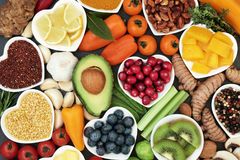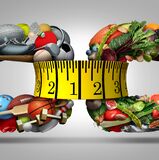Take a Peak: Elevating Intake for Peak Output
What and When to Eat for Peak Performance-Spotlight on Carbohydrates
Let’s look at a few Myths debunked!
Myth: Anyone with the title Doctor will know your nutritional needs.
Fact: Doctors are NOT Registered Dietitians or Nutritionists”.
Myth: Carbs are the enemy.
Fact: Excessive calories are the enemy, which can come from fat, carbs, or protein”.
Myth: I have a slow metabolism.
Fact: Metabolism does not decline until after age 60”
Myth: Lifting heavy weights will make my muscles bigger.
Fact: Lifting alone won’t do that”.
Benefits of understanding and implementing the Nutrient Timing Principles:
Optimize fuel (food) to remain energized throughout the day and exercise.
Repair and strengthen muscles to their fullest potential.
Eat/drink sufficient nutrients to remain healthy and build immune response to fight infections and limit immune system suppression experienced during intense training or endurance training.
Recover from training/exercise, so you are ready for the next session, practice, event, or game with well-fueled muscles.

Here’s a bite sized snack on the physiology around eating and digestion:
Digestion begins in our mouth when we start chewing, then moves down to the stomach to be further broken down with chemical processes then to the intestines for absorption or defection. This process can take 24-48 hours, so if you eat dinner at 6pm and expect that to fuel your 5am workout the next day you might not be as energized as you think. Especially if you limited your carbs. Most times when we feel sluggish or glittery our central nervous system is lacking carbs. Carbohydrates are the main fuel source for our brain and many other systems in our body. However, if you woke up after a bad night of sleep, fuel (food) will not be able to help supply energy. Eating food cannot make up for a lack of sleep.
Fueling for our Goals:
Weight loss is all about a caloric deficit, meaning burning more than we intake. This doesn’t mean you have to spend countless hours counting calories, but proper planning is needed. Keeping a journal or log and planning your menu the night before are productive techniques.
‘Without an organized plan your weight loss goal is only a dream’.
Weight training, resistance training, flipping tires, lifting heavy things, or whatever you want to call it, will be your biggest contributor to weight loss. Building muscle and engaging in a caloric deficit will transform the body. Follow the carb intake for building muscles below.
For building muscle, strength, and toning our body will require more protein and carbs before, during and after training. We need the carbohydrates s because they help initiate hormone release needed to build and repair muscles after a breaking down period, which is actually what happens when lifting weights.
Consuming protein and carbs after a workout will be the best combination of adding size to muscles, bigger muscles can often equal less fat. However, consuming small amounts of carbs and proteins during meals and snacks throughout the day will also help with the repair and building of muscle.
Without proper rest between training bouts immunity can compromised and the risk of injury increases greatly. Strenuous bouts of exercise can deplete carbohydrates leading to lower blood levels in immunes cells lead to the invasion of viruses. And exercising in a low carbohydrate state leads to higher levels of stress hormones and inflammatory factors.
Dehydration and low blood sugar in the CNS (central nervous system) can lead to a lack of concentration, poor reaction time, and slowness. This is important to prevent because injuries such as ligament tears, sprains and strains can occur with a lack of focused and controlled movement. Chronic energy drains can lead to Injuries such as stress fractures or overuse injuries due to the body not being properly fueled or given adequate rest periods.
Why we need and how our body uses Carbs:
Some carbohydrates remain in our bloodstream as blood sugar
Some carbs are stored in our liver
Some carbs are stored in our muscles for later use – like a battery
Some carbohydrates go directly to fuel our brain and other organs
Carbs Before Exercise:
Carbohydrates are vital for any type of athlete or physical activity; from cardio to strength and power training, all use carbs for the contraction of muscles and the prevention of excessive muscle damage. Pre-exercise meals and snacks will happen throughout the day and even begin the day before. A pregame meal should be at least 24 hours in advance to be properly utilized, and then topping off the tank 15 minutes before a game, event, or training session. The pre-exercise snack 15 minutes before would ideally be fast absorbing energy, something that is easily and quickly digested. Avoid pre-exercise foods that will cause gut upset or irritation.

Carbs During Exercise:
Carbohydrate intake during physical activity will improve performance in all types of exercise. Taking in carbs during endurance sports, helps to prevent glycogen stores from the liver and muscles being completely depleted. For stop and go sports carbs help to preserve concentration, skill, agility, speed, and prevents injury.
Not all carbs are made equal, so which is best during exercise? If you are a runner, sprinter, cheerleader, or anything else that requires jumping/jostling avoid juices, which will help prevent stomach upset, however, eating a few orange slices or other fruit slices are better.
There is less fruit sugar in actual fruit than in 8oz of a juice drink. A mixture of fruit sugar and glucose, as long as they are not too concentrated will be best, and consuming small quantities more frequently improves absorptions, and allows more energy into the muscles, with less stomach upset. Studies have shown taking in 30 – 60 grams of mixed carbs every 15 minutes for best results, Gu or gel pack, or other workout supplement are good options. And unless you are exercising for longer than 90 minutes, water is best for hydration, because too much sugar carbs from sports drinks could upset the stomach or add unnecessary calories to your daily intake.
Carbs After Exercise:
Recovery begins immediately when you stop exercising. The three “R’s” in fitness are refuel, rehydrate, rest. The importance of these three are to ensure you get back to the next bout of exercise fully prepared and recovered. The first two hours after sport or exercise are crucial. It is during this time that your muscles will store glycogen at the fastest rate. You’ll continue to store glycogen after that window, just at a slower rate. If your goal is to replenish and store energy (glycogen) it is imperative to ingest a recovery shake that includes carbs and protein as soon after exercise as possible. It can take up to 24 hours to fully replenish energy (glycogen) that has been depleted. After resistance training or any eccentric training replenishing stores happens at a slower rate, so consuming carbs immediately after training is crucial in the amount of 1-1.5 grams per kilogram of body weight (divide your body weight by 2.2 to get kilograms) Example: 150lb body weight /2.2 =68.18 x 1.5 = 102 grams of carbs. Repeat this amount of intake again within 2 hours.
If you are participating in 2 or more workouts per day or a tournament event, recovery between sessions or events is extremely important. Recovery nutrition should begin 15 minutes post-exercise and continue every 2 hours. Overall carbohydrate nutrition should encompass a variety of sources and nutrients, from easily digested carbs such as a bagel, to nutrient dense vegetables (which offer vitamins and fiber) during periods of recovery between training.
Easily digested carbs are recommended15 minutes before activity, during, and immediately after. A more nutrient dense carb is recommended at meals between events or workouts. This is important, so you don’t become deficient in essential vitamins and minerals found in fruits and vegetables.
Tune in next week for protein benefits and intake as it relates to exercise.
Disclaimer: I am not a registered dietitian or nutritionist. The information in this article is based on research from said professionals and my general knowledge of nutrition and scope of practice regarding the subject. If you are seeking specific nutritional guidance, I recommend scheduling an appointment with a Registered Dietitian.
Jennifer Noll, MS
www.restoremvmt.com









